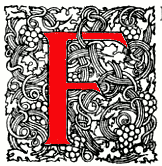[Spencer's “On Education” originally appeared in the Westminster Review. This text has comes from the Project Gutenberg online version of the Everyman edition of Essays of Education — George P. Landow]

rom the far past down even to the present, social needs have subordinated individual needs, and that the chief social need has been the control of individuals. It is not, as we commonly suppose, that there are no governments but those of monarchs, and parliaments, and constituted authorities. These acknowledged governments are supplemented by other unacknowledged ones, that grow up in all circles, in which every man or woman strives to be king or queen or lesser dignitary. To get above some and be reverenced by them, and to propitiate those who are above us, is the universal struggle in which the chief energies of life are expended. By the accumulation of wealth, by style of living, by beauty of dress, by display of knowledge or intellect, each tries to subjugate others; and so aids in weaving that ramified network of restraints by which society is kept in order. It is not the savage chief only, who, in formidable war-paint, with scalps at his belt, aims to strike awe into his inferiors; it is not only the belle who, by elaborate toilet, polished manners, and numerous accomplishments, strives to "make conquests;" but the scholar, the historian, the philosopher, use their acquirements to the same end. We are none of us content with quietly unfolding our own individualities to the full in all directions; but have a restless craving to impress our individualities upon others, and in some way subordinate them. And this it is which determines the character of our education. Not what knowledge is of most real worth, is the consideration; but what will bring most applause, honour, respect—what will most conduce to social position and influence—what will be most imposing. As, throughout life, not what we are, but what we shall be thought, is the question; so in education, the question is, not the intrinsic value of knowledge, so much as its extrinsic effects on others.
Related Materials
- “Parents are not good enough”: Children, Human Nature, and the Relation of Education to a Flawed Humanity and Its Flawed Society
- All Institutions Eventually Become Oppressive
Bibliography
Spencer, Herbert. "On Manners and Fashion." Essays on Education and Kindred Subjects. London: Dent/Everyman, 1966.
Last modified 18 November 2019